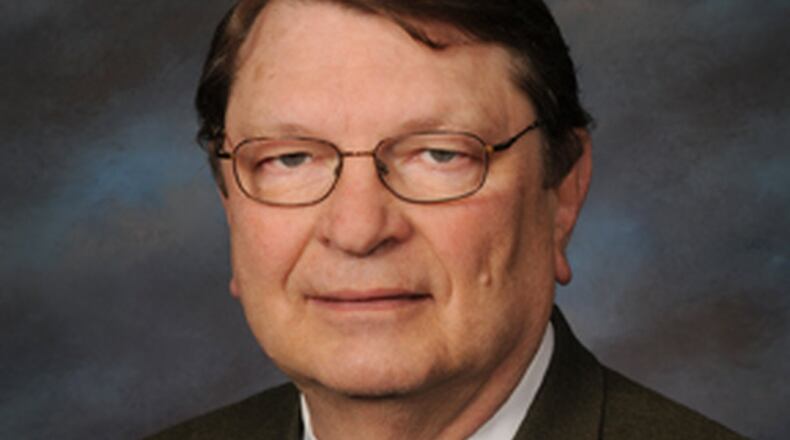Lt. William L. Calley Jr., a platoon leader with Charlie Company, would be the only soldier convicted at court martial of the premeditated murder of 22 Vietnamese in connection with the massacre, historical accounts show. U.S. soldiers reportedly killed as many as 500 unarmed My Lai villagers, mostly the elderly, women and children.
Wilberding was a 27-year-old Army lawyer arguing before a military appeals court in Falls Church, Va., on Dec. 4, 1972 why Calley’s court martial should stand. A courtroom sketch of Wilberding appeared on network television that day, showing widespread national interest in the case.
“That was a huge scene,” Wilberding, now 74, said Thursday, and who spent more than a year on the case. “There were all kinds of people there and it was an all-day hearing.”
MILITARY NEWS: Experts see Trump, North Korea meeting risky,hopeful
Decades later, Wilberding’s background as an Army lawyer would be put to use while he represented the local family of Maria Lauterbach, a pregnant Marine murdered in 2007 by a fellow Marine.
“In both cases, the crime was so awful that the military or Army or Department of Defense thought it should serve as a lesson that it shouldn’t happen again,” Wilberding said in a 2013 interview with the Dayton Daily News.
In the case of My Lai, the assault on the village began March 16, 1968.
Soldiers descended on the village with information Viet Cong and North Vietnamese fighters were there, Wilberding said.
“But when the helicopters landed, nobody fired back,” he said, recalling his hours of studying reports and transcripts of what happened.
“They (U.S. soldiers) were primed for a big fight and they started shooting anything that moved and then burning the hutches and eventually they chased out all the people,” he said.
Villagers were huddled on a trail and in an irrigation ditch where soldiers received orders to kill them, Wilberding said.
A handful of soldiers defied orders and refused to shoot, he said.
“My conclusion was, and still is, their common sense told them this was wrong,” Wilberding said. “You don’t shoot unarmed men, women and children who are huddled together in a ditch and to me they are the heroes in it. To me, that’s the lesson.”
The massacre didn’t emerge publicly until more than a year later when a soldier wrote to President Richard Nixon and members of Congress about the massacre and journalists broke the story.
Calley had many supporters who believed neither he nor other soldiers should face prosecution, Wilberding said.
Calley’s court martial conviction was upheld by the Army Court of Military Review in 1973 and the U.S. Court of Military Appeals in 1974.
Sentenced to life in prison, the soldier’s sentence was eventually reduced to 10 years. He served three years under house arrest before his release.
MILITARY NEWS: Navy aviators faced Arctic temps in plane mishap; Turner wants answers
In 2009, he spoke publicly about the massacre to a Kiwanis Club in Columbus, Ga.
“There is not a day that goes by that I do not feel remorse for what happened that day in My Lai,” Calley said, according to an account of the meeting reported by the Columbus Ledger-Enquirer. “I feel remorse for the Vietnamese who were killed, for their families, for the American soldiers involved and their families. I am very sorry.”
He said his mistake had been following orders, which was his defense when he was tried.
The Associated Press contributed to this story.
About the Author
